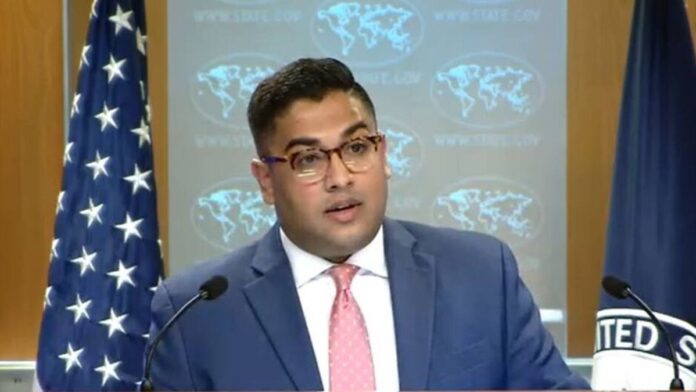The United States has once again firmly denied any involvement in the recent political crisis in Bangladesh that culminated in the resignation of Prime Minister Sheikh Hasina. Following the White House’s earlier rejection of these claims, the U.S. State Department has also characterized the allegations as “laughable.”
Principal Deputy Spokesperson Vedant Patel of the State Department addressed the issue, stating, “That’s laughable… Any implication that the United States was involved in Sheikh Hasina’s resignation is absolutely false. We have seen a lot of disinformation in recent weeks, and we remain incredibly committed to strengthening information integrity across the regional ecosystem, especially with our partners in South Asia.”
The controversy arose after Sheikh Hasina, who recently left the country, was reported to have claimed that she could have retained power if she had ceded sovereignty over St. Martin’s Island and allowed U.S. influence over the Bay of Bengal. Her son, Sajeeb Wazed, has strongly denied that his mother made any such statement. “The recent resignation statement attributed to my mother published in a newspaper is completely false and fabricated. I have just confirmed with her that she did not make any statement either before or since leaving Dhaka,” Wazed posted on X (formerly Twitter).
On Monday, White House Press Secretary Karine Jean-Pierre also dismissed the allegations, emphasizing, “We have had no involvement at all. Any reports or rumours that the United States government was involved in these events is simply false. That is not true.”
Amid the ongoing crisis, American entrepreneur and 2024 Republican presidential candidate Vivek Ramaswamy condemned the alleged violence against Hindus in Bangladesh, which he linked to the country’s controversial quota system for government jobs. Ramaswamy described the situation as a “cautionary tale” and called the quota system a “disaster” that led to widespread protests and the eventual downfall of the government.
“The targeted violence against Hindus in Bangladesh is wrong, it’s concerning, and it’s a cautionary tale for victimhood-laced quota systems,” Ramaswamy said in a post on X. He recounted the history of the quota system, noting that it was initially introduced to rectify the wrongs of the 1971 Bangladesh Liberation War but has since led to further unrest and violence.



